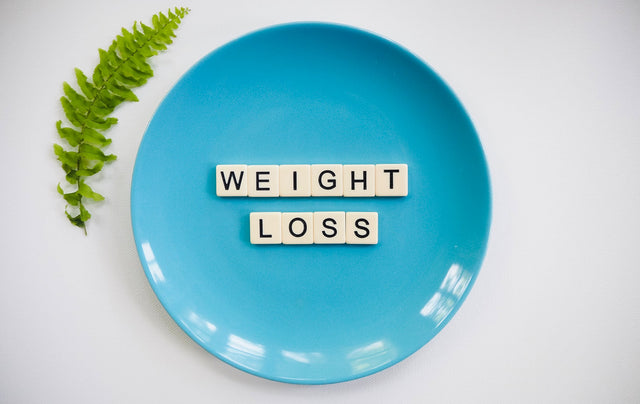If I had to guess, you’re probably not getting much fiber in your diet. Modern day diets severely lack in key nutrients, due to the huge paradigm shift towards ingesting more protein, fat, and less carbohydrates. Since fiber is classified as a carbohydrate, that means you’re most likely not getting adequate amounts of fiber in your diet. We’re going to learn how and why you should incorporate more fiber in your diet, to meet your goals.
How Does Fiber Work?
Fiber is unique. Your body does not absorb fiber and it passes straight through your gastrointestinal tract (GI). Since it passes straight through your GI you can’t really have a fiber deficiency. That also means, that fiber is not metabolized like other types of carbohydrates such as simple carbs which, raise your blood insulin levels, and aid in body fat accumulation.
How Much Fiber Do You Need?
According to the “Dietary Guidelines For Americans In 2015” on average, Americans are only consuming 15 grams of fiber per day, due to a low intake of fruit, vegetables, and total grains [R]. Typically, you should be getting at least 25-30g of fiber per day, or 14 grams for every 1,000 calorie increment in your diet. That means on average, most of us are only getting half the amount of fiber we really need. Additionally, there is no way to accurately measure fiber in your body. But low fiber intake has been linked to gastrointestinal issues such as upset stomach, bloat, and constipation in addition to chronic disease and diabetes.

Why Do You Need Fiber?
Fiber Improves Digestive Health
Fiber’s most prominent role is helping your digestive health. Fiber comes in two forms, soluble and insoluble. Insoluble fiber promotes the movement of material through your digestive system and increases bowel movement. Essentially, it’s like a broom that sweeps your system, so you can easily pass bowel movements on a consistent basis. If you don’t get enough insoluble fiber in your diet, you can have symptoms such as irregular bowel movement and constipation. Whole-wheat flour, wheat bran, nuts, beans and vegetables, such as cauliflower, green beans and potatoes, are all great food sources packed with insoluble fiber [R].
Soluble fiber, comes from oats, peas, beans, and the fleshy part of fruits and veggies such as apples, carrots and citrus fruits and partially ferments in your gut. As it dissolves, it forms a gel-like material that passes through the GI tract slowing digestion and allowing better nutrient absorption. One of the benefits of soluble fiber is that it lowers cholesterol and maintains stable glucose levels.
Studies show that dietary fiber also helps maintain bowel health, reducing chances for hemorrhoids and colon cancer. Including more dietary fiber in your diet can help with normalizing bowel movements and decreasing the chances for constipation.
RELATED ARTICLE 5 Reasons Why You Need To Eat More Carbs
Fiber Reduces The Risk Of Heart Disease
Fiber also appears to help reduce the risk of chronic disease and diabetes [R]. In a Harvard study, that included over 40,000 male health professionals, researchers found that high total dietary intake was correlated with a 40% lower risk of developing coronary heart disease [R]. Another Harvard study, following female health professionals, showed very similar results.
Fiber Reduces The Risk Of Type 2 Diabetes
If your diet is low in fiber and high in processed foods that have simple carbs and refined sugar, blood glucose levels spike. Studies show that constant increases in blood glucose levels can increase the chances of contracting type 2 diabetes [R, R]. Diets high in simple carbohydrates more than double the risk of contracting diabetes when compared to diets consisting of complex carbohydrates [R].
RELATED ARTICLE Simple Vs. Complex Carbohydrates: Which Carbs Should You Eat?
High-Fiber Foods
If you’re on a low carbohydrate diet, fiber does not increase blood sugar levels. Therefore, foods high in fiber don’t really count towards total carbohydrate intake. Remember to subtract fiber from carbohydrates to arrive at total net carbs.
RELATED ARTICLE The Truth About Net Carbs Vs Total Carbs
Try to include some of the dietary fiber food choices below to boost your fiber intake
- Whole-grain products [oatmeal, quinoa, barley]
- Fruits [avocados, apples, strawberries, carrots, pears,
- Vegetables [chickpeas, broccoli, artichoke, brussels sprouts, sweet potatoes, yams]
- Beans, peas and other legumes
- Nuts and seeds [chia seeds, pistachios, almonds]
- Clean Carbs [Sweet Potatoes, Yams, Oats, & Blueberries]
Easy Ways To Eat More Fiber
Since most fiber is in whole grain products, vegetables, and beans, it can be tough sometimes to meet the recommended daily intake of 25-30g of fiber per day. Here are a tips and tricks to get more fiber in your diet.
- Eat more whole fruits instead of drinking fruit juices.
- Replace white rice, bread, and pasta with brown rice and whole grain products.
- For breakfast, eat more whole grains such as oatmeal or Clean Carbs
- Snack on raw vegetables instead of chips, crackers, or chocolate bars.
- Substitute beans or legumes for meat two to three times per week in chili and soups.
- Substitute cauliflower mash or sweet potato mash, for golden potatoes
How Much Fiber Do You Need: Takeaway
Considering that most Americans over consume protein and fat, and leave fiber out to dry, fiber is more important than ever. Fiber is crucial to your long-term health and maintaining a healthy digestive system. Remember, even if you follow a low carbohydrate diet, fiber does not raise your blood glucose levels. The entire reason for staying low carb, is so you maintain consistent blood sugar. With fiber, you don’t have to worry about the spikes and the extra body fat.
Looking for a way to increase your fiber intake? Clean Carbs from Swolverine is the perfect way to increase your fiber intake and start your day. Clean Carbs is packed with 100% complex carbohydrates superfoods, sweet potatoes, yams, oats, and blueberries proving you the long-lasting and sustained energy you need without raising your blood sugar levels.
Get 15% off when you subscribe and have Clean Carbs delivered every 60 days straight to your doorstep!
SWOLVERINE is an endurance athlete and active lifestyle brand. Made for the elite athlete, and the strong-willed our products were designed to fuel your athletic performance. We perform when you perform.
We believe that everyone can optimize not only their athletic performance but their human potential. The way we believe we can optimize performance is through transparency, clinically effective doses, and clinically proven ingredients with evidence-based outcomes. We provide the nutrients you need to power your active lifestyle.
References
Pereira MA, O’Reilly E, Augustsson K, et al. Dietary fiber and risk of coronary heart disease: a pooled analysis of cohort studies. Arch Intern Med. 2004;164:370-6.
Rimm EB, Ascherio A, Giovannucci E, Spiegelman D, Stampfer MJ, Willett WC. Vegetable, fruit, and cereal fiber intake and risk of coronary heart disease among men. JAMA. 1996;275:447-51.
Brown L, Rosner B, Willett WW, Sacks FM. Cholesterol-lowering effects of dietary fiber: a meta-analysis. Am J Clin Nutr. 1999;69:30-42.
Fung TT, Hu FB, Pereira MA, et al. Whole-grain intake and the risk of type 2 diabetes: a prospective study in men. Am J Clin Nutr. 2002;76:535-40.
Liu S, Willett WC, Stampfer MJ, et al. A prospective study of dietary glycemic load, carbohydrate intake, and risk of coronary heart disease in US women. Am J Clin Nutr. 2000;71:1455-61.
Schulze MB, Liu S, Rimm EB, Manson JE, Willett WC, Hu FB. Glycemic index, glycemic load, and dietary fiber intake and incidence of type 2 diabetes in younger and middle-aged women. Am J Clin Nutr. 2004;80:348-56.








